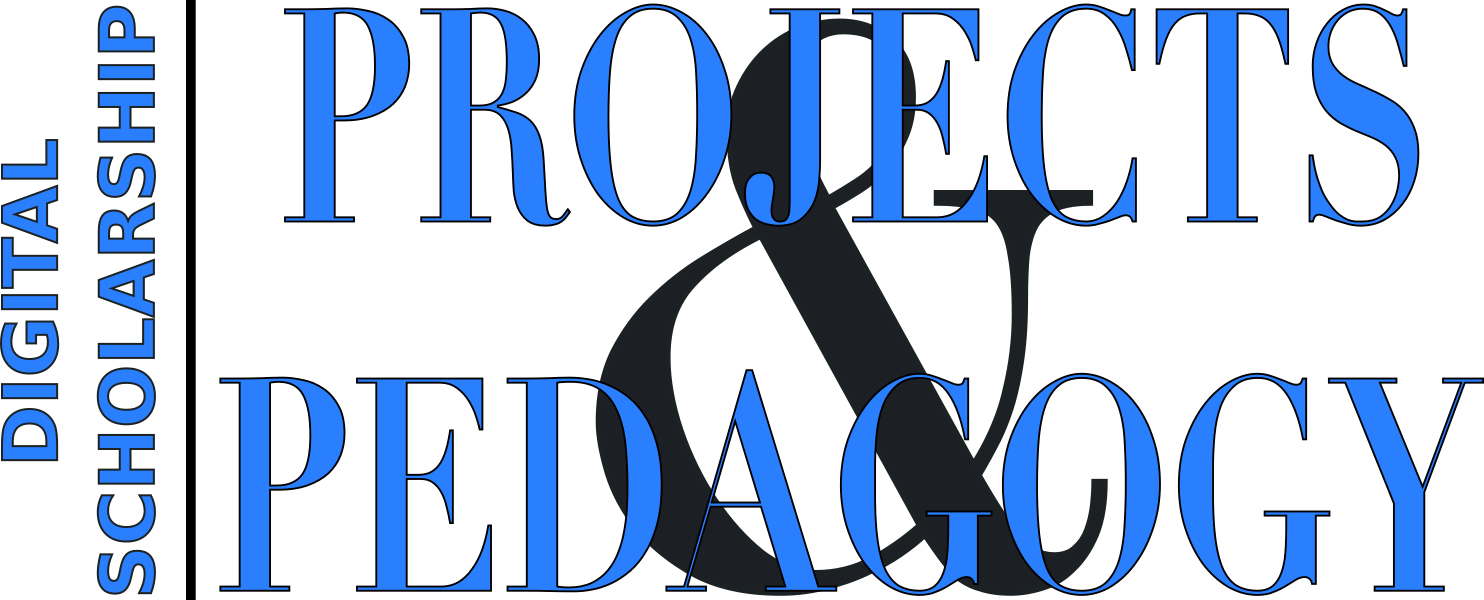“Defining” Digital Liberal Arts 2
 Conversations that center on defining our digital practices (or communities, or disciplines) are so last decade.
Conversations that center on defining our digital practices (or communities, or disciplines) are so last decade.
In his now-canonical “What Is Digital Humanities and What’s It Doing in English Departments?” (2010), Matthew Kirschenbaum noted that “‘What is digital humanities?’ essays like this one are already genre pieces.” By 2012, tucked in the comments of Ted Underwood’s post on How Everyone Gets to Claim They Do DH (2012), Ryan Shaw could ensure his students that “one of the few things that unites digital humanists of all stripes” is that they grow “thoroughly sick of discussing how to define the digital humanities.” The line had been crossed. But I hasten to add that it’s out of these discussions, “genre pieces,” moments of Defining Digital Humanities that Julianne Nyhan, Melissa Terras, and Edward Vanhoutte have curated an admirable DH primer that was published just a few months ago. This is to say that, because of the proliferation of definition-centered conversations over the last decade–because there are many fine examples of this brand of intellectual exploration–we’re now able to use them as a way to reflect, frame, and project our notions of “digital humanities.”
It’s with this arc in mind that I proposed a panel on Defining Digital Liberal Arts for MLA 2015. My position in the Ohio Five requires a certain amount of DH outreach, which requires a kind of shorthand for talking about DH. My experiences as a digital humanist, however, can only help frame discrete parts of this brave new world’s digital discourses that are at once distant and familiar. The digital scholarship that I’ve seen is somehow more widely inclusive and differently particular.
Last spring, as a way of suggesting avenues into a DH “movement,” William Pannapacker suggested that we Stop Calling it Digital Humanities. Digital liberal arts (DLA), he notes, is a “more inclusive” term for the kind of work that we might associate with “digital humanities.” Especially in liberal education where the interdisciplinarity of students’ interests is expected and advised, it’s important to bring non-humanists into the conversation, both for their disciplinary specialties and their digital experience. It is this key of inclusion that leads Raphael Alvarado to follow Pannapacker with the explicit assertion to Start Calling it Digital Liberal Arts. Not only is “digital humanities” a “social category” (rather than an ontological one, a distinction Alvarado works out elsewhere), but, perhaps more to the immediate point, “DLA involves more than a cluster of disciplines [e.g. humanities] can encompass; it involves rethinking the curriculum as a whole, the spaces within which education happens, and the careers of students who pass through them both.”
When I invite, well, anyone who’s interested to think with me about “Defining Digital Liberal Arts” it is, in part, so that I might develop a shorthand useful to me in my position as a “Digital Scholar.” It’s practical and personal: new to this landscape, I need a way of orienting myself and any others in my consortium interested in doing digital work. On the other hand, though, thinking through these issues together and publicly can and should challenge the very notion of a shorthand. Not simply an exercise in defining our terms, it is rather an invitation to engage in the kind of rethinking to which Alvarado points. It is not an invitation invested in circumscribing a discursive space for “digital liberal arts,” but in asking how a digital, liberal education should equip our undergraduate students for their post-baccalaureate lives. If DLA is to be a the thread, how is it dyed and woven to form an insitutional tapestry?
This post, like the MLA CFP itself, is in some sense an effort to crowdsource answers to my own questions about the digital in the liberal arts. My sense, though, is that they’re not easy questions. Indeed, as with our understanding of “digital humanities,” how we see DLA will change over time. Both Pannapacker and Alvarado suggest that liberal arts colleges and universities may be nimble enough to accommodate these shifts in meaningful ways; an agile curriculum development, perhaps. For starters, though, I wonder how we see “DLA” right now? And whether or not we should see it at all? Is the term a useful way of opening this conversation or, conversely, does it close us off by suggesting some kind of definitional authority that doesn’t actually exist?
Don’t worry if you need some time to think about it. Just send me a abstract. I’ll meet you in Vancouver next January and we’ll talk some more.
